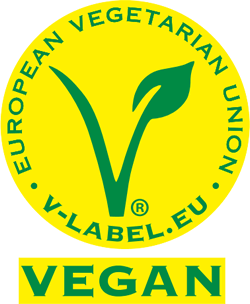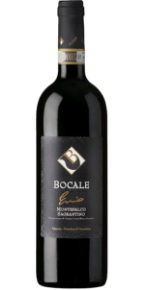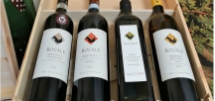The first vegan Sagrantino is on the market. The ethical commitment of the Bocale winery, the producer with just under 6 hectares under vine at Montefalco in the Province of Perugia, has taken another step forward. The company has in fact obtained V-Label Vegan certification for its wines.
V-Label is an international symbol, registered and used in over 70 countries around the world: among the principal markets in which it is present are Europe, the United States and China.
Created in Italy in 1977, it is the symbol that is most widely recognized by vegetarian and vegan consumers worldwide.
«In a historical period like the one we are going through because of the current pandemic, themes such as the relationships between man and the environment and man and health – which were already close to our hearts before – will become increasingly fundamental» explains Valentino Valentini, owner of the estate. «For this reason, we have decided to follow the path of becoming Vegan Friendly».
The Bocale wines are therefore produced without any trace of animal derivatives, eggs or dairy products. « This is a further step on our part to look after our consumers: those who have chosen a vegan lifestyle and those who suffer from certain allergies.» adds Valentino.
On the subject of wine and health, it is for decades now that studies have been carried out on the beneficial effects of moderate and informed drinking. As early as 2001 the research on the polyphenolic makeup of Sagrantino by Doctors Giorgio Nicolini and Leonardo Valenti at the Agricultural Institute of San Michele all’Adige brought to light many interesting aspects of this variety: «The Sagrantino wines […] are characterized by a notable content of total polyphenols, anthocyanins and tannins. […] Compared to Cabernet Sauvignon, Pinot Nero, Corvina and Sangiovese wines in the databank of the Agricultural Institute of San Michele all’Adige, Sagrantino wines have clearly demonstrated themselves to be the richest in polyphenols».
From this study, then, it can be seen that Sagrantino can be included among the wines that have the highest content of polyphenols, which are renowned for their antioxidant effects.
«Today high-quality wines are being made all over the world, but I’m convinced that from now on consumers will look more and more for distinctiveness and salubriousness in the products they buy, and Sagrantino can be defined as unique and is also undoubtedly one of the wines that is best for one’s health, if drunk in moderation» concludes Valentino.
Bocale’s commitment to minimizing environmental impact does not finish here: the management of the estate is ecologically sustainable and machinery and vehicles are used in the vineyards that run on electricity, powered by the photovoltaic plant that was installed 10 years ago.
In the vineyard no herbicides are used and this ensures a wine without any residues of chemical products, and grass is allowed to grow between the vine rows in order to reduce mechanical operations, erosion and soil leaching.
Also, in the winery only indigenous yeasts are employed and no microfiltration or stabilization is carried out.
Bocale’s wines are good for human health and for that of the environment.
The polyphenolic potential of red grapes: a comparison of 25 Italian varieties
Among the various publications focusing on the study of polyphenols and their application in winemaking, this extract – in which Sagrantino is compared with other important varieties in Italy – stands out. Once again, the cultivar demonstrates significant and distinctive characteristics: it is the variety that reveals both the largest quantity of extractable polyphenols (far higher than all the others under examination – Graph 1) and the highest tannin content (Graph 2).
Graph 1: Extractable polyphenols in 25 principal red wine grape varieties; average data for each variety, expressed as (+)-catechins, in mg/kg of grapes.
Graph 2: Extractable proanthocyanidins in 25 principal red wine grape varieties; average data for each variety, expressed as cyanidin, in mg/kg of grapes.





